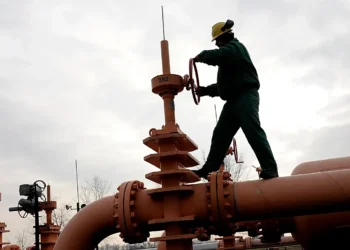The post-Cold War period is reflected in the pace of globalization not only by the fragmentation of trade and financial ties, but also by a significant reduction in the stability and sustainability of the existing geopolitical order. Basically, these two sides of the coin are now so intertwined that fluctuations in politics directly affect the economy, and vice versa. We have also said that the relationship and interdependence of such fluctuations (with the lifting of specific means mentioned in this article) is most clearly seen in low- and middle-income countries. The established reality is that security policy or politics in security has almost become the unquestioned determinant of economic progress. It is from such “subordination” that modern economic nationalism or the new economic autarchy – a separate and largely closed economic policy of a particular country – is born.
Judging by the current trends and public speeches of high-ranking officials, we are dealing with such a phenomenon as a new type of economically secure state. The April 2023 speech of White House National Security Advisor Jack Sullivan is very telling in this regard. In his speech, he spoke at length about the contradictory relationship between the free market and economic security and made some very notable points. In particular, according to Sullivan, the complete and uncontrolled delegation of economic processes to the open market and its players:
(a) has weakened the national security of the United States of America; and that –
(b) total dependence in global economic ties is abused by others to achieve their economic or geopolitical objectives; as well as –
(c) economic liberalization by previous United States administrations has not only failed to achieve peace and stability, but has also led to the rise of China and critical vulnerabilities in the global supply and delivery chain.
In practice, with this emphasis, we have had a significant expansion of the traditional understanding of “security” (which implied the prevention of war, terrorism, etc.), with the result that security now includes food supply, energy self-sufficiency, inflation management, climate change, etc.
Moreover, statements made at a number of economic alliance forums and gatherings suggest that the so-called Washington Consensus, in place for some time after the end of World War II and the Cold War, has been replaced by a New Washington Consensus. According to opinions circulated in different sources, the updated version of the mentioned “consensus” implies both a rejection of the prioritization of market over security and maintaining a balance between the two. This theoretical paradigm is actually difficult to imagine. It is all the more difficult to put it into practice because this approach, called “de-risking”, is, in fact, as new as the well-forgotten old one – proper management of the economic process by minimising its vulnerability as much as possible. It should be assumed that this result is reflected, inter alia, in reasonable state control and management of market processes, examples of which we clearly see in some countries of the European Union and Asia, e.g. in Japan.
To summarize this view, let us say that the security of the economic system is based on a single and indivisible, so-called holistic approach and includes mutual harmonization and synergy of measures in different areas. Given the complexity of modern challenges, this is even more critical. Let us add that market players, despite their ability to adapt to global shocks and their flexibility, do not have the basic ability to manage geopolitical risks, which in modern conditions has, almost without alternative, a dominant subject of international relations – a state or a union of states.
Excessive sanctions “appetite”: a risk for globalization?
However strange the proposed wording may sound, one very specific problem has arisen in recent years in relation to the application of sanctions. Let us try to briefly explain what its essence is.
The fact is that sanctions, as a universal means of overcoming wrong, are used today with little thought. Moreover, the relentless pursuit of sanctions has created a “sanctions industrial base”, as if the excessive number of sanctions and their use without strategic thinking could help alter the policies and behavior of the target actor. As a result, the “overdose” of sanctions has prompted many countries (including those that violate international law) to consider establishing financial systems that would allow them to bypass US dollar-dominated payment channels. Such efforts, of course, again lead to a weakening of globalization.
The promotion of economic coercive policies, the popularization and indiscriminate use of sanctions as an immediate response has, in fact, significantly undermined the foundations of meaningful economic policy. For their part, excessive and ill-considered punitive practices and global harmonization of the rules of economic behavior favor “me” over “we” and reduce economic resilience in the face of growing global challenges.
In order for us to realize…
…we have presented a small overview of economic trends, including selected opinions and assessments. Yes, the Georgian economy is very small, and this smallness is probably one of the obstacles to its rapid growth. However, it is also a fact that in the modern world “smallness” does not mean exclusion and isolation. Moreover, it is precisely the interconnectedness of global economic channels (like the law of “communicating vessels” in physics) and the effect of a wide spillover of global shocks that made the division into “big” and “small” more conditional, at least in economics.
Therefore, when determining Georgia’s economic policy, it is necessary to constantly monitor the processes taking place around us in order to critically assess them and determine the actions that we should implement, guided by sound rationality.
Taking this into account, we would like to summarise some (already well known) considerations. This thinking is only at the “amateur” level and, clearly, when discussing such a topic, the qualified assessment of representatives of professional circles has a very different importance and weight. In any case, to promote the stability and self-sufficiency of our country’s economic system, its competitiveness and real growth, we should think and care about:
• Wider integration with developed economies. This will be of practical importance for qualitative improvements in our trade and financial flows, as well as for the transfer to us and adoption of advanced technologies and knowledge.
• Expansion and diversification of the export market. It is well known that holding on to a particular market is economically vulnerable and risky from the point of view of national security; Accordingly, the more sources of “expenditure” and “income” there are, the more space and freedom for nation-state development. All this is connected, inter alia, with free trade agreements and trade associations.
With the rise of economic nationalism in the world, we should also think and care:
• Not only about the quantitative, but also about the qualitative side of investment. Given the current global and regional threats, we believe it is unacceptable to consider any investment as desirable for our country. It is time to learn how to differentiate and choose them. For this purpose, we consider it advisable to review investments and introduce a mechanism for their so-called “screening” at the legislative level. We would also like to note that many developed economic systems use this method today.
• Timely channelling of necessary resources into the country’s intellect. Without ensuring “intellectual self-sufficiency” in this way, we are doomed to witness the outflow of so many valuable human resources from Georgia and thus exhaust our competitiveness and growth potential in the near future.
In addition to the above, we would consider the following as practical measures:
• A large and separate place should be given to the issue of economic security in the national security doctrine of Georgia. This special attention, again, is dictated by the modern and multifaceted understanding of the concept of “security” mentioned in this article. We must agree that national security is unthinkable without a unified set of economic measures, because no one in this world will consider and speak as honorable partners with the weak, the poor and those reaching out for help.
• The direction of economic security in the format of the National Security Council should be strengthened. As one of the possible developments, we do not rule out the separate creation of an Economic Security Council or its institutionalization within the system of the National Security Council.
• When talking about the structural approach, we would also mention as a possible subject of discussion the introduction of the position of the Minister of Economic Security in the Government of Georgia with the corresponding supervisory scope and functions.
• Whether under the auspices of the Economic Security Council or the Minister of Economic Security, one of the main tasks should be to continuously monitor and analyse the risks and threats to Georgia’s economic security. This process should be objectively reflected in a periodic document on economic threats (similar to the current practice in the European Union). Among other necessary issues, the document will assess short-, medium- and long-term risks to the country’s economic security, as well as recommended measures to minimize and manage them.
• In addition to the doctrinal approach, the appropriateness of legislation ensuring economic security (e.g. Georgia’s Act on Economic Security) should be discussed. In working on such legislation, special attention should be paid to, inter alia: (a) coordination of government agencies in times of crisis; (b) rapidly realigning global or regional delivery and supply from one system to another, and to reduce overdependence on one system; (c) promoting modern innovation in critical sectors.
We realize that there is much to talk about in this regard and many more key aspects could be mentioned. However, it is a fact that all of them can only be realized in conditions of normalization of relations within the country. We would like to reiterate what has already been said many times: the country has neither the “luxury” nor the resources to continue functioning within the framework of “political business-making”, a process that has transcended institutions, centred only on the static harmful imperative of preserving and gaining power.
The Georgian political and social elite, those who understand that elitism is first and foremost equated with responsibility, openness and self-criticism, are required to saturate the internal and external lines with meritocracy, knowledge and informed decisions. Today, the country faces a practically non-alternative task: to invest in its own functional competitiveness, effecient security and inclusive development in order to regain its place in the existing “disorderly order”.
Analysis by Victor Kipiani, Geocase Chairman














